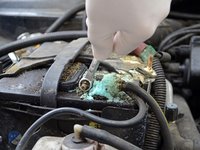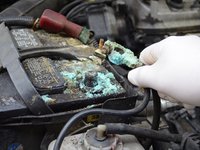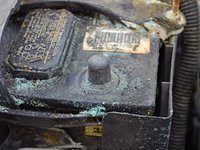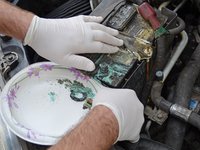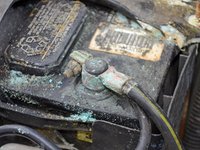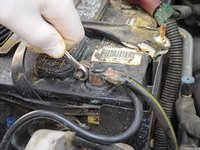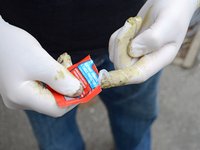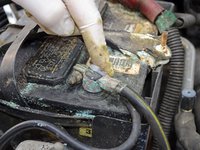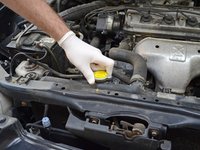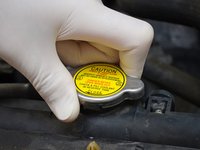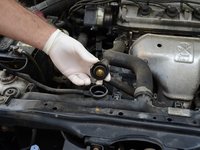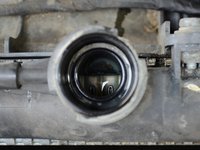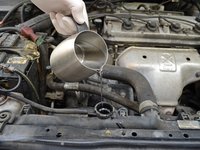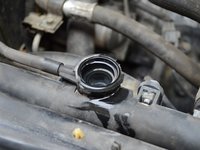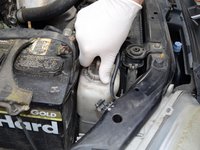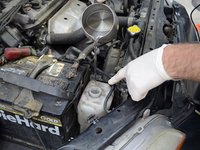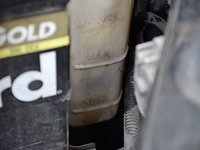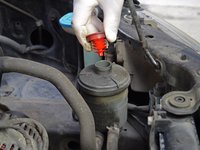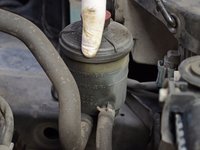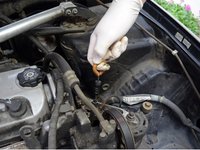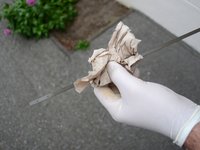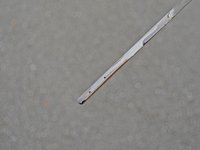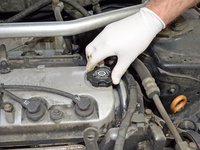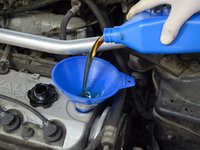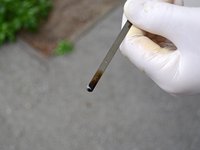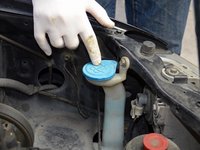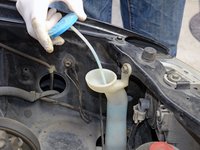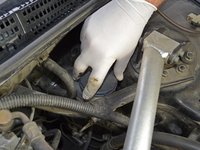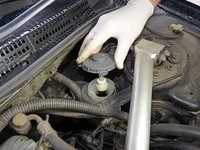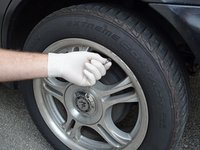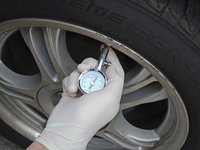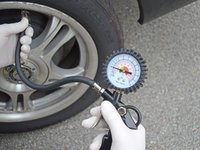Introduction
This guide will show you how to perform small maintenance techniques on your vehicle that will prolong the life of the vehicle and keep it running in tip-top shape. These include:
- Removing battery corrosion
- Checking and refilling power steering, window washer, radiator, and brake fluid
- Checking and refilling the engine oil
- Checking and adjusting the tire pressure.
What you need
-
-
Pull on the hood release lever just inside the driver-side door to pop the hood.
-
Locate the hood release latch under the hood. Use one hand to press up on the latch while you lift the hood.
-
Insert the hood prop rod into the hole in the hood marked with an arrow.
-
-
-
Locate the battery on the left side of the engine bay.
-
If your battery has a cover on it, remove it and set it aside.
-
Look for corrosion on the battery terminals. Corrosion can be either white, grey, or blue and will generally be quite noticeable.
-
-
-
Using a 10mm hex wrench, loosen the nut on the screw holding the negative terminal in place.
-
If the corrosion is preventing you from accessing the nut, use the other (open) end of the wrench or a wire brush to scrape some of the corrosion away.
-
Pull the negative battery cable off of the negative lead.
-
-
-
-
Twist the radiator cap counterclockwise and remove it from the radiator.
-
-
-
Locate the power steering reservoir near the front right corner of the engine bay.
-
If the fluid level is below the "Lower Level" fill line, remove the cap and refill the reservoir with power steering fluid.
-
-
-
Locate the dipstick on the right side of the engine.
-
Remove the dipstick from its housing and wipe it off with a rag.
-
Re-insert the dipstick, and then remove it. This will give an accurate reading for the level of oil in the engine.
-
-
-
Twist the oil filler cap counterclockwise, and remove it from the top of the engine.
-
Using a funnel, pour one quart of manufacturer specified oil into the engine.
-
Remove the dipstick and check the oil level.
-
If the oil level is still low, add more oil.
-
When the oil has reached the proper level, replace the dipstick and oil filler cap.
-
-
-
Locate the window washer fluid reservoir in the front right corner of the engine bay.
-
If the fluid level appears to be low, refill the reservoir with window washer fluid.
-
-
-
Locate the brake fluid reservoir at the rear right corner of the engine bay.
-
If necessary, unscrew the cap and refill the brake fluid reservoir.
-
-
-
Unscrew the valve stem cap from the valve stem on the tire.
-
Using a handheld pressure gauge, check the pressure in the tires. The tires should be inflated to approximately 30 psi.
-
Using an air compressor, re-inflate the tires to the desired air pressure.
-
Cancel: I did not complete this guide.
65 other people completed this guide.
8 Guide Comments
Forgot to put the new oil filter in the motor and skipped that and added oit the said done hope you didnt do my car....lol









